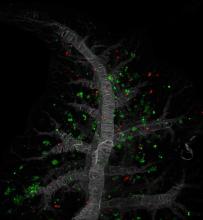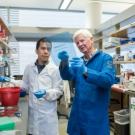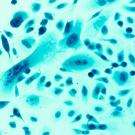News
New Colorectal Cancer Screening Guidelines from the ACS: What You Should Know
Colorectal cancer screening is an “in-the-news” topic, as the American Cancer Society (ACS) now recommends that people of average risk should start regular screening at age 45, rather than age 50. Its recently released guidelines were published in CA: A Cancer Journal for Clinicians. Such revised
Important Cancer-Tracking Registry to Locate at UCSF
The Greater Bay Area Cancer Registry, which has been at the forefront of cancer data collection throughout the region for more than 40 years and has helped lead to improved state and national understanding of cancer, is moving its headquarters and management to UC San Francisco. The registry
Genetic Study of Familial Leukemia Solves 30-Year Medical Mystery
A decades-old medical mystery has been solved by researchers at UC San Francisco and St. Jude Children’s Research Hospital in Tennessee, who have discovered a pair of inherited genetic mutations underlying a familial blood disorder that sometimes leads to leukemia. The research, based on analysis of
Study Suggests HUD's New Smoke-Free Policy Will Help More Low-Income Smokers Quit
Enforcing residential bans on smoking could help large numbers of low-income people quit smoking, according to an analysis of federally funded national surveys by a California research team. The finding comes as public housing authorities across the country face a July 31st deadline from the U.S
Genomic Landscape of Metastatic Prostate Cancer Unveiled in New Study
A comprehensive genetic analysis of metastatic prostate cancer has, for the first time, revealed a number of major ways in which abnormal alterations of the genome propel this aggressive form of the disease. As reported in the July 19, 2018 issue of Cell, a team led by investigators at UC San
NIH and Prostate Cancer Foundation Launch Large Study on Aggressive Prostate Cancer in African-American Men
UCSF is one of four NCI cancer centers leading a large national study of African American men with aggressive prostate cancer. The RESPOND study, which will examine links between aggressive disease and environmental and genetic factors, aims to enroll 10,000 men. The following press release was
Breast Cancer Follow-Up Imaging Varies Widely, Study Finds
Follow-up imaging for women with non-metastatic breast cancer varies widely across the country, according to a new study led by researchers at UC San Francisco. Some patients go without the annual mammograms that experts recommend, while others with the same cancer diagnosis receive full-body scans









